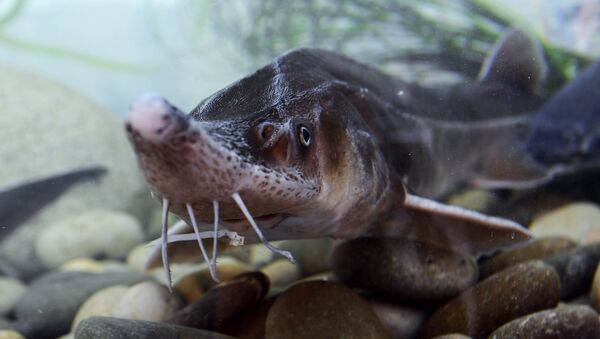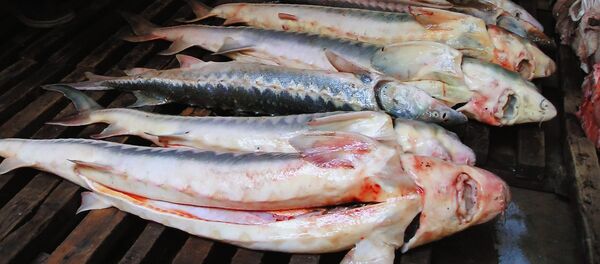ASTRAKHAN (Sputnik), Anastasia Levchenko — Disputes between the Caspian Sea littoral states over the legal status of the sea and their rights to its oil resources hinders their cooperation in preserving sturgeon, putting this fish on the verge of extinction, Russia's Astrakhan region parliamentarian Oleg Shein told Sputnik Friday.
Sturgeon population has been rapidly declining in recent years because of a number of environmental factors, including widespread poaching and chemical runoff into the waters it inhabits as well as oil exploration.
"Unfortunately, the problem of preserving sturgeons in the Caspian Sea stems from the problem of dividing oil and gas resources," Oleg Shein, who is a member of Spravedlivaya Rossiya Party and a former member of Russia's State Duma, told Sputnik.
Russia has managed to reach understanding with Azerbaijan and Kazakhstan. However, disputes related to control of the oilfields between Iran and Turkmenistan, as well as between Azerbaijan and Turkmenistan remain, the politician explained.
"It is exactly this range of problems that impedes settlement of the situation in general. Consequently, there is no clear joint position of the Caspian states on the protection of biological resources of the Caspian Sea," Shein said.
The parliamentarian added that the situation is unlikely to change in the near future because of unwillingness of Russia's Caspian state partners to find a solution.
The importance of international cooperation in preserving sturgeons has been repeatedly emphasized by Russian leading specialists in the field. The cooperation is needed precisely because the sturgeon is a transborder fish that migrates for spawning.
Raisa Khodorevskaya, representative of the Caspian Research Institute of Fishing Industry, in the conversation with Sputnik on Wednesday said that efforts of Russia alone would never yield any results unless they are supported by other Caspian states.
Nowadays, more and more analysts believe that sturgeon is doomed to total extinction in approximately five years.



